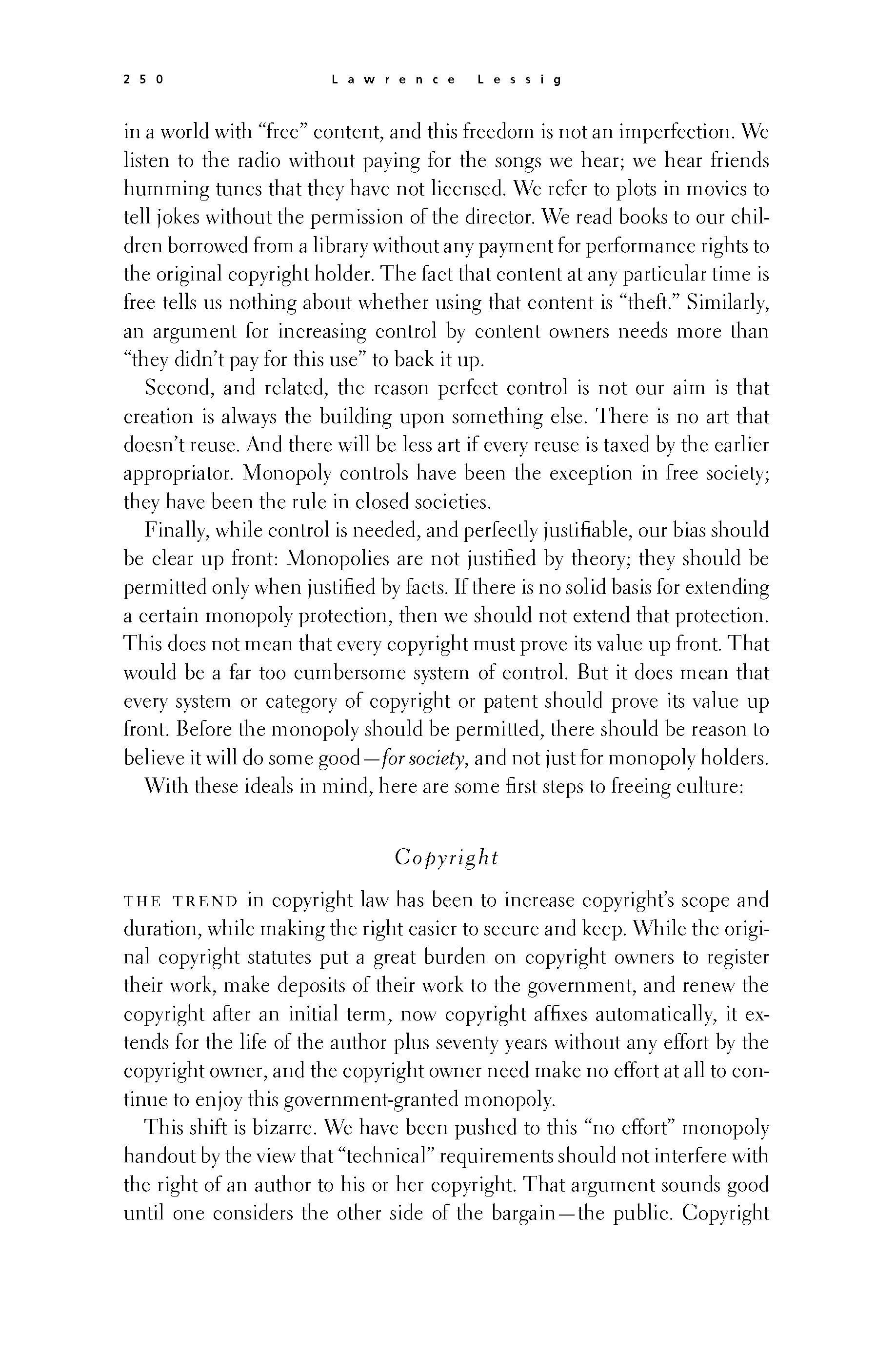 p249 _
-chap- _
toc-1 _
p250w _
toc-2 _
+chap+ _
p251
p249 _
-chap- _
toc-1 _
p250w _
toc-2 _
+chap+ _
p251
in a world with "free" content, and this freedom is not an imperfection. We
listen to the radio without paying for the songs we hear; we hear friends
humming tunes that they have not licensed. We refer to plots in movies to
tell jokes without the permission of the director. We read books to our chil-
dren borrowed from a library without any payment for performance rights to
the original copyright holder. The fact that content at any particular time is
free tells us nothing about whether using that content is "theft." Similarly,
an argument for increasing control by content owners needs more than
"they didn't pay for this use" to back it up.
Second, and related, the reason perfect control is not our aim is that
creation is always the building upon something else. There is no art that
doesn't reuse. And there will be less art if every reuse is taxed by the earlier
appropriator. Monopoly controls have been the exception in free society;
they have been the rule in closed societies.
Finally, while control is needed, and perfectly justifiable, our bias should
be clear up front: Monopolies are not justified by theory; they should be
permitted only when justified by facts. If there is no solid basis for extending
a certain monopoly protection, then we should not extend that protection.
This does not mean that every copyright must prove its value up front. That
would be a far too cumbersome system of control. But it does mean that
every system or category of copyright or patent should prove its value up
front. Before the monopoly should be permitted, there should be reason to
believe it will do some good -- _for_society,_ and not just for monopoly holders.
With these ideals in mind, here are some first steps to freeing culture:
/tab\/tab\_Copyright_/tab\/tab\
The trend in copyright law has been to increase copyright's scope and
duration, while making the right easier to secure and keep. While the origi-
nal copyright statutes put a great burden on copyright owners to register
their work, make deposits of their work to the government, and renew the
copyright after an initial term, now copyright affixes automatically, it ex-
tends for the life of the author plus seventy years without any effort by the
copyright owner, and the copyright owner need make no effort at all to con-
tinue to enjoy this government-granted monopoly.
This shift is bizarre. We have been pushed to this "no effort" monopoly
handout by the view that "technical" requirements should not interfere with
the right of an author to his or her copyright. That argument sounds good
until one considers the other side of the bargain -- the public. Copyright
[[250]]
p249 _
-chap- _
toc-1 _
p250w _
toc-2 _
+chap+ _
p251